Read Butterfly in the Typewriter Online
Authors: Cory MacLauchlin
Butterfly in the Typewriter (25 page)
While Toole's writing had provided him relief, it also caused him to retreat from the social atmosphere of Fort Buchanan. He became further detached from everything and everybody. He donned dark sunglasses when off duty and seemed to avoid the carousing at the officers' club or the bars in San Juan. In pictures taken during a large picnic at Fort Buchanan, he appears as a blurred, sunglassed figure, moving unnoticed through crowds of people, like Burma Jones in
Confederacy
. Toole describes himself as a tragically humorous character in a picture he sent to his parents:
Confederacy
. Toole describes himself as a tragically humorous character in a picture he sent to his parents:
Enclosed is a photograph of Sgt. Toole emerging from the English Instructors' barracks; the window on the right is my room; the people in the foreground are two duds. The sunglasses and pith helmet add a tropical note to Sgt. Toole's appearance . . . as he slouches off to new triumphs.
By June he fell into a slump similar to the previous summer; however, his upcoming discharge offered him encouragement. And he still took pride in the recognition the army continued to offer him: he was promoted to Specialist Fifth Class. The army placed laurels upon his brow every few months. But more importantly, the promotion may have sustained him during a particularly bad cycle of trainees. With a decrease in instructors, Toole returned to teaching, while maintaining administrative duties. His writing suffered. And the trainees were more colorful but also more brazen compared to the trainees a year prior. He writes to his parents,
If only you knew how ludicrous this “Training Center” is, a place where almost all the trainees this cycle are wearing stocking caps. It is a general practice for Puerto Rican men to use pancake make-up on their faces and to use neutral polish on their fingernails, and it is not unusual to see a trainee opening a compact during a break in the English classes or working on his nails.
The image offers humor, but his jest clearly springs from frustration. He had endured disrespect and insubordination, uncharacteristic of army discipline and unusual for Toole who had enjoyed popularity as an instructor. On one occasion during the cycle, “a ball of paper flew through the air” and hit him on the head. Toole insists on the hilarity of the situation but then, once again, generalizes the incident as representative of Puerto Rico. “What a frightening civilization exists on this island: ignorant, cruel, malicious, infantile, self-centered, undependable, and very proud withal.”
As he commanded less respect from the trainees, his relationship with the instructors of Company A soured as well. Toole had earned
their trust as a superior who protected them from the authoritative whims of their commanders. They saw him as a fair and honest sergeant. But on one occasion his actions resulted in the downfall of his reputation. As Kubach recalls, one evening he and Toole walked into the Company A office and found Private First Class Bob Morter slumped over a desk with a large, empty bottle of pain killers next to him. All signs indicated Morter had tried to commit suicide.
their trust as a superior who protected them from the authoritative whims of their commanders. They saw him as a fair and honest sergeant. But on one occasion his actions resulted in the downfall of his reputation. As Kubach recalls, one evening he and Toole walked into the Company A office and found Private First Class Bob Morter slumped over a desk with a large, empty bottle of pain killers next to him. All signs indicated Morter had tried to commit suicide.
Most of the instructors recognized Morter as a troubled individual. Some instructors in Company A recalled Morter drinking himself into oblivion all too often. And his mannerisms signaled to them that he was homosexual, a substantial personal challenge in both the military and civilian society of the early 1960s. While the instructors of Company A maintained a relaxed attitude toward Morter's behaviors, the group of young men periodically chided him, as he seemed marginal from the group, never quite fitting in. Whatever haunted Morter, his struggle culminated one evening as he sat alone in the Company A office.
As head of the company, Toole should have called an ambulance upon seeing Morter's limp body. While Toole was not particularly fond of Morter, he also knew that a suicide attempt would tarnish Morter in the eyes of the military and increase his suffering. He delayed calling the authorities, hoping Morter might revive on his own. After some time passed and Morter remained unresponsive, Toole called the ambulance. Morter survived, but the instructors questioned Toole's reason for delay.
Kubach maintains that Toole was trying to protect Morter from further embarrassment. But the rest of Company A found Toole's hesitation disturbing; they interpreted it as a chilling indifference to human life. According to Tony Moore, one instructor asked, “Why would Morter do something like this?” Toole dismissively and unsympathetically responded, “Why does Morter do anything?” Moore recalls a group of instructors in Company A convening one evening to decide if they should report Toole's delayed response. For many of the men, Toole had violated their trust and failed to fulfill his duty as a leader. But they also remembered that he had made their lives in Puerto Rico more pleasant than it might have been without his leadership; he often protected them from the tirades of their superiors. Moore suggests that their sense of appreciation prevented the group of instructors from
pursuing official action, but they had lost respect for Toole. According to one account, to settle the score, several guys roughed up Toole one night outside his private room. But it resolved nothing. As Kubach recalls, “Everything really went downhill for him after that.”
pursuing official action, but they had lost respect for Toole. According to one account, to settle the score, several guys roughed up Toole one night outside his private room. But it resolved nothing. As Kubach recalls, “Everything really went downhill for him after that.”
The incident prompted Toole to reflect over some hard-learned lessons. He writes a cryptic letter to his parents on June 30. Even his mother likely had difficulty making sense of what provoked such introspection.
While I have had unusual success in the Army, I have also had unusual problems (This is a statement, not a complaint. I believe that I have matured sufficiently to avoid complainingâpreviously one of my more apparent characteristics.). Handling a contingent of English instructors trapped here together for almost two years and half-maddened by continual exposure to the trainees has not been easy. Some aspects of this have almost been tragic. I can sincerely say that nothing could phase [sic] me any more . . . and that nothing is all-inclusive.”
As a leader, he had faltered. Once again, his daydreams of home offered consolation:
If I am fortunate I will be able to forget many things that have happened in the last few months; however, this place is so far removed from reality that the happenings here tend to fade from your mind when you get away for only a day . . . I would like to sit in the living room and talk for hours and hours and hours . . . over black coffee, lemonade, bourbon or whatever you are willing to serve me.
In the summer heat, deviant trainees and military politics burdened him, but fortunately in late June his writing resurged. It was the glimmer of his future after the army. He reported this development to his parents and detailed his precise purpose in returning home:
On the writing, I have experienced a “renaissance” and have been regularly adding to the manuscript page by page. My one hope in civilian life (in the immediate months following discharge) is that I will have conditions favorable to trying to complete this thing and to polish it. That is why I am planning to stay in New Orleans, for I feel that I should be able to do some work there while I am unburdened by having to shift for myself so far as housing and food are concerned. I must make one try at getting something published and I feel that this is the time . . . . One point should be made clear: I do not intend to go to Law School or to any other school at the present time. About the thing I am writing I have one conviction: it is entertaining and publishable, and I have more than a degree of faith in it.
He finally proclaims unrestrained belief in his talents and his creation. While returning to Columbia University was the more conventional road toward a life in academia, he chose an uncertain path, leading to either his dreams of authorship or nightmares of rejection. But in several letters, he returns to his reasons for moving back to New Orleans, as if he needed to repeatedly justify his decision, perhaps even to himself. Despite his attempts to idealize his visions of home, requesting gold-framed pictures of his mother and imagining quaint disagreements with neighbors, moving back to New Orleans came with substantial peril. After years of independence, two of which he had excelled in the military, he would once again live under his parents' roof, and once again he would answer to his mother. From his letters, he appears purely motivated by his literary aspirations, but his apparent need to validate his decision calls this premise into question.
The Tooles still struggled financially. Ever since he garnished his army paycheck for their benefit, he felt obligated to help them. If he negotiated between his sense of filial duty and his own desires, the publication of his novel offered him an exit plan and the possibility of financial security. His decision to move back home required both faith in his talents and faith in his plan to free himself from a life bound to his parents.
Â
Thelma Toole in the year of her marriage, 1927. Her son requested she send this photo in a gold frame to him while stationed in Puerto Rico, where he wrote
A Confederacy of Dunces
. (Personal Collection of Joel Fletcher)
A Confederacy of Dunces
. (Personal Collection of Joel Fletcher)
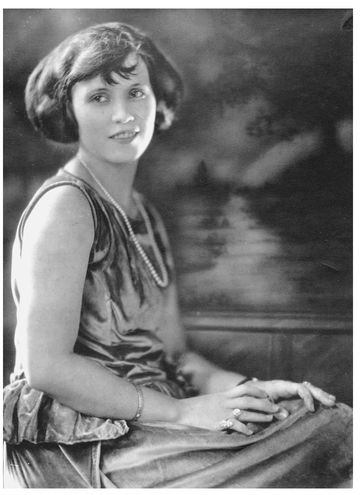
Â
John Toole circa 1919. He enlisted in the Marines at the end of World War I, although he never left the country. (LaRC, Tulane University)
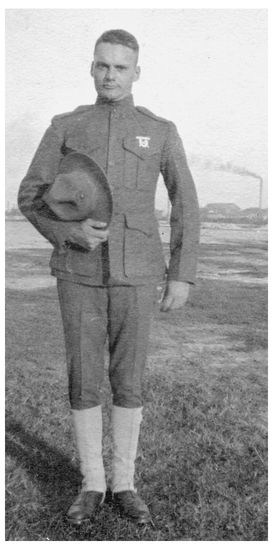
Â
“The Beauteous Babe,” as Toole's mother often referred to him. From the moment he was born, she noted how he was bright-eyed and observant. (LaRC, Tulane University)
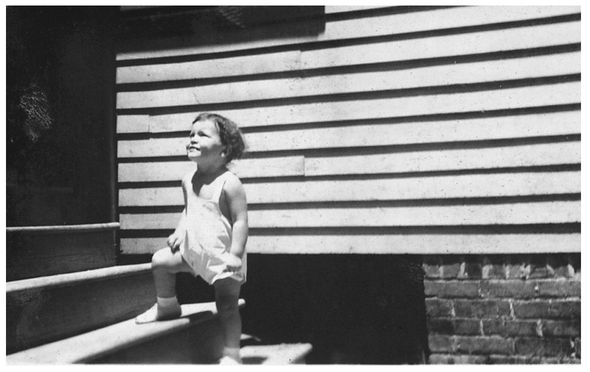
Â
From an early age, Toole took an interest in automobiles. His father was a car salesman, and his mother proudly claimed “Kenny Boy” could name the makes and models of cars at the age of two. When he was five, his father let him drive around the block with a friend, unattended. His mother was outraged. (LaRC, Tulane University)
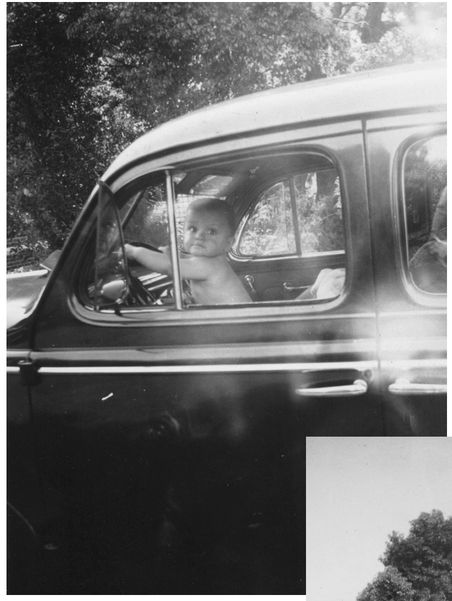
Â
A rare picture of father and son. John Toole lifts his “Kenny Boy” to the sky. (LaRC, Tulane University)
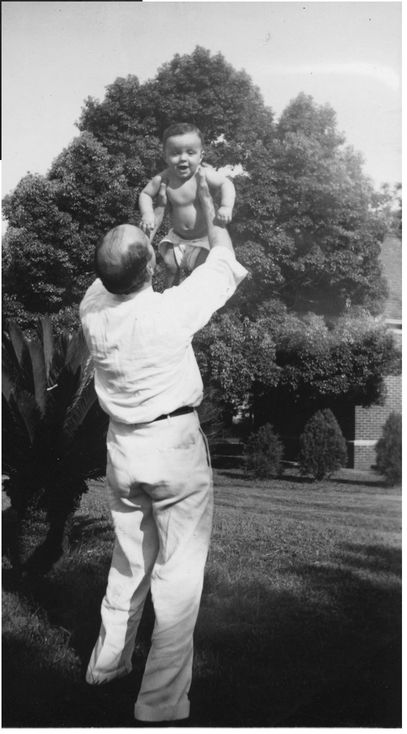
Other books
Escape (Part Three) by Reed, Zelda
Forever Beach by Shelley Noble
The Miraculous Journey of Edward Tulane by Kate DiCamillo
The Fragrance of Geraniums (A Time of Grace Book 1) by Ruggieri, Alicia G.
If You're Gone by Brittany Goodwin
Flame of Cytherea: Cytherean Chronicles book 1 by D. R. Rosier
Brutally Beautiful by Lynne Connolly
Forgive and Forget by Charlie Cochet
Onward Toward What We're Going Toward by Ryan Bartelmay
Two For One Special (Menage Romance) by Marie Carnay

